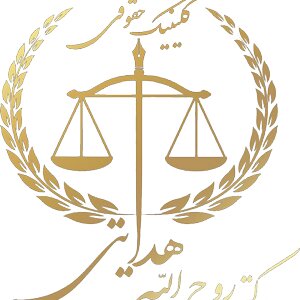Best General Litigation Lawyers in Mashhad
Share your needs with us, get contacted by law firms.
Free. Takes 2 min.
List of the best lawyers in Mashhad, Iran
About General Litigation Law in Mashhad, Iran
General Litigation in Mashhad, Iran, refers to the legal process where parties seek resolution for disputes through the judicial courts. This field covers a wide variety of civil and commercial conflicts, including contract disputes, property issues, personal injury matters, debt collections, and more. In Mashhad, as in other parts of Iran, General Litigation is governed under the Iranian Civil and Commercial Codes, as well as procedural laws that outline how cases are filed, heard, and resolved. The courts in Mashhad play a crucial role in interpreting the law, ensuring justice, and upholding the rights of individuals and businesses.
Why You May Need a Lawyer
You might need a General Litigation lawyer in Mashhad if you find yourself involved in any situation that requires formal legal resolution. Some common scenarios include:
- Business disputes, such as breach of contract with suppliers, partners, or customers.
- Property disagreements, including issues related to ownership, leasing, or boundaries.
- Debt recovery when someone owes you money or you have unpaid financial obligations.
- Personal injury claims if you have been harmed due to someone else's negligence.
- Inheritance disputes and family property division.
- Employment disputes related to terms, dismissal, or compensation.
- Consumer rights violations or fraud cases.
A lawyer will help you navigate the complex legal system, advise you of your rights and obligations, draft legal documents, represent you in court, and work toward the best possible outcome.
Local Laws Overview
General Litigation in Mashhad operates under the broader framework of Iranian law, which is based on a combination of civil law, Islamic principles, and national codes. Litigation typically proceeds as follows:
- Disputes are first brought before the appropriate court - usually the General Court for civil matters or the Special Court for commercial issues.
- The Iranian Civil Procedure Code lays out the steps, timeframes, and documentation needed to start a case.
- Both parties are allowed to present evidence, witnesses, and make legal arguments.
- Court-appointed experts may be involved when technical or specialized knowledge is required.
- Judgments can be appealed in higher courts if grounds exist.
- The process can be lengthy and sometimes involves mediation or settlement negotiations before the final ruling.
In Mashhad, the courts, lawyers, and official translators are regulated by local and national authorities to ensure proper conduct and justice.
Frequently Asked Questions
What types of disputes can be handled under General Litigation in Mashhad?
General Litigation covers a wide range of disputes such as contract disagreements, commercial conflicts, property cases, debt collection, personal injury, employment disputes, and family or inheritance matters.
Is it mandatory to hire a lawyer for litigation in Mashhad?
While you can represent yourself in many cases, hiring a lawyer is highly recommended because they provide expertise, ensure proper legal procedure, and improve your chances of success.
How long does the litigation process usually take?
The duration varies depending on case complexity and court workload. Simple cases might resolve in a few months, while more complex disputes could take several years.
What documents will I need to start a litigation case?
Common documents include your national identification, a written statement of the claim, any relevant contracts or agreements, evidence, and payment for filing fees.
Can court decisions be appealed in Mashhad?
Yes, most court decisions can be appealed to a higher court within a specific time limit as provided by law.
What is the role of mediation in General Litigation?
Mediation is often used to encourage parties to resolve their issues amicably before the court issues a final judgment. Courts may suggest or require mediation in some cases.
Are foreign nationals allowed to sue or be sued in Mashhad courts?
Yes, foreign nationals have the right to pursue or defend litigation in Iranian courts, subject to specific procedural requirements and, at times, the need for official translations.
How are court fees determined?
Court fees are generally calculated based on the value of the claim and the type of dispute. There are standard tariffs set by the judiciary, which lawyers can help clarify.
What happens if a party ignores a court summons?
Ignoring a court summons can lead to a default judgment against the absent party, meaning the court may decide the case in favor of the present party.
How can a judgment be enforced in Mashhad?
Once a judgment is final, enforcement proceedings can be initiated, often through the Execution of Judgments Office, to recover debts, transfer property, or achieve compliance.
Additional Resources
If you need further help with General Litigation in Mashhad, these resources may be useful:
- Judiciary of the Islamic Republic of Iran (Dadgostari) - the main authority overseeing courts and litigation processes in Mashhad.
- Mashhad Bar Association - provides a directory of licensed lawyers and legal professionals in the city.
- Legal Advice Centers (Kanoon Moshaavereh Hoghoughi) - often provide free or low-cost initial consultations on legal matters.
- Chamber of Commerce, Industries, Mines and Agriculture of Mashhad - useful for commercial and business disputes.
- Civil and Commercial Courts of Mashhad - official judicial bodies handling litigation cases.
Next Steps
If you believe you need assistance with a General Litigation matter in Mashhad:
- Gather all relevant documents and evidence related to your case.
- Schedule a consultation with a licensed lawyer specializing in General Litigation to discuss your situation.
- Ask the lawyer about their experience, the process, likely outcomes, fees, and any initial steps you should take.
- Follow your lawyer’s instructions regarding arranging documentation, court fees, and preparing your case.
- Attend all meetings, hearings, or mediation sessions as scheduled by your lawyer or the court.
Early legal advice can make a significant difference to your case. Do not hesitate to seek professional assistance to protect your rights and interests in Mashhad.
Lawzana helps you find the best lawyers and law firms in Mashhad through a curated and pre-screened list of qualified legal professionals. Our platform offers rankings and detailed profiles of attorneys and law firms, allowing you to compare based on practice areas, including General Litigation, experience, and client feedback.
Each profile includes a description of the firm's areas of practice, client reviews, team members and partners, year of establishment, spoken languages, office locations, contact information, social media presence, and any published articles or resources. Most firms on our platform speak English and are experienced in both local and international legal matters.
Get a quote from top-rated law firms in Mashhad, Iran — quickly, securely, and without unnecessary hassle.
Disclaimer:
The information provided on this page is for general informational purposes only and does not constitute legal advice. While we strive to ensure the accuracy and relevance of the content, legal information may change over time, and interpretations of the law can vary. You should always consult with a qualified legal professional for advice specific to your situation.
We disclaim all liability for actions taken or not taken based on the content of this page. If you believe any information is incorrect or outdated, please contact us, and we will review and update it where appropriate.









